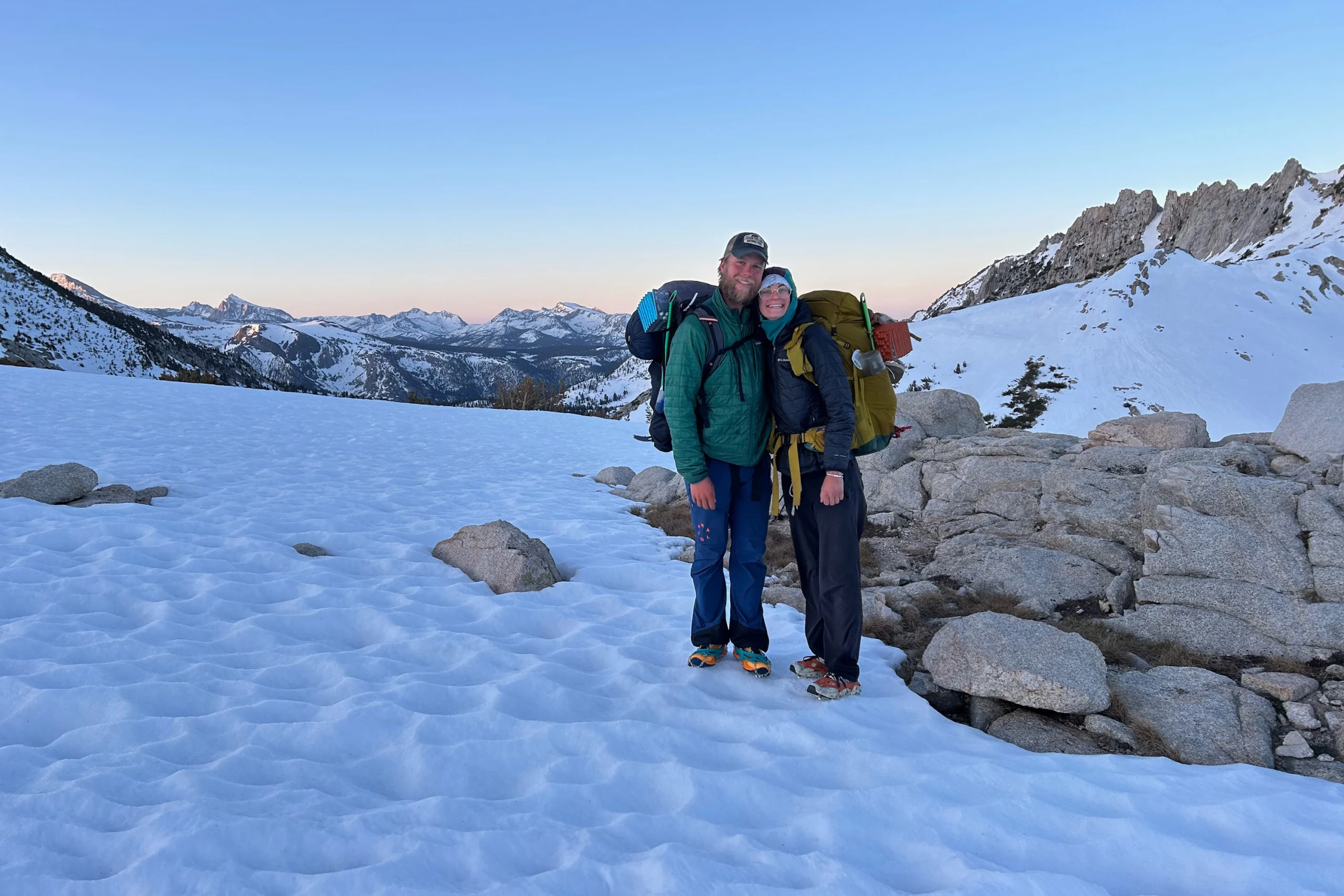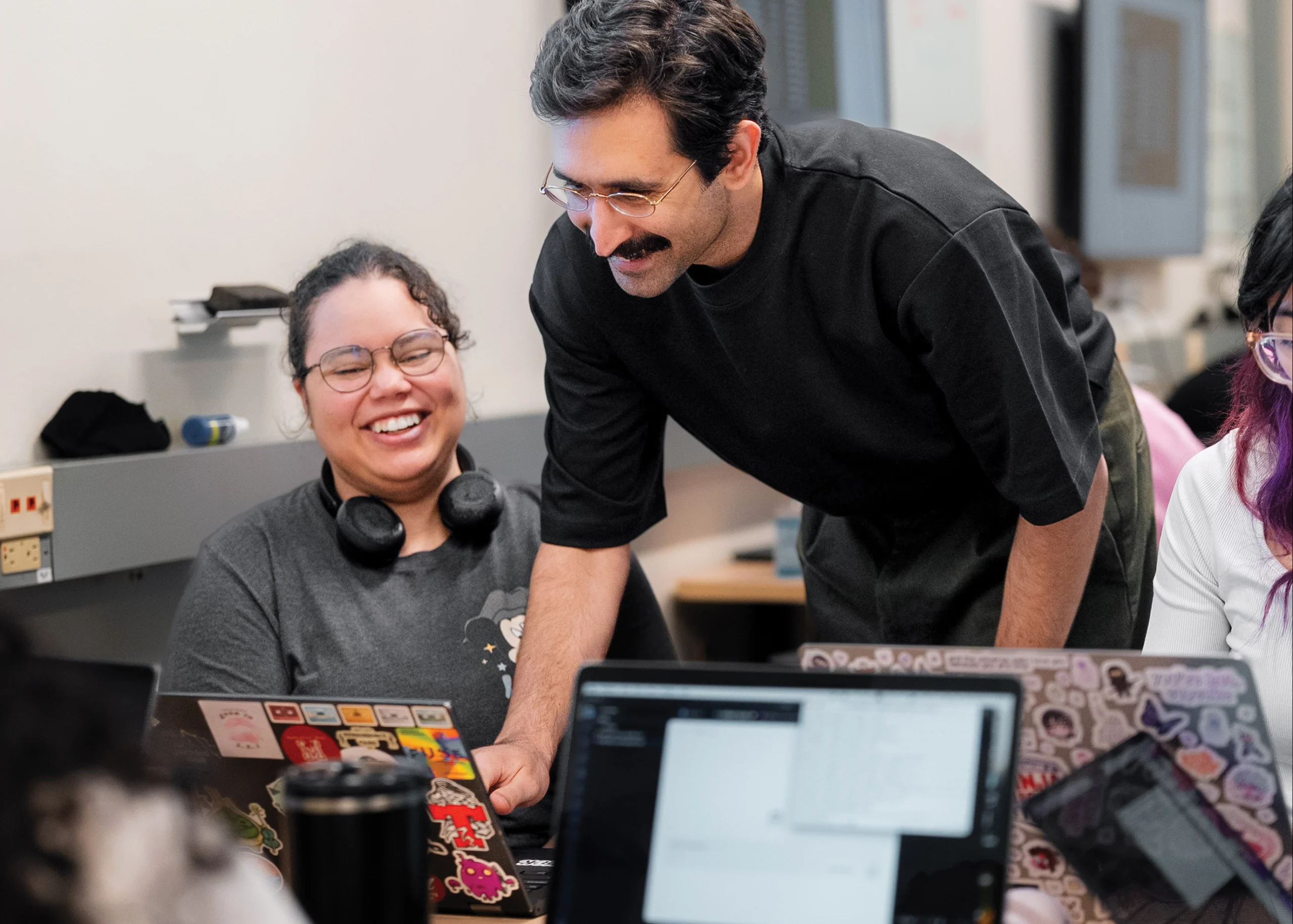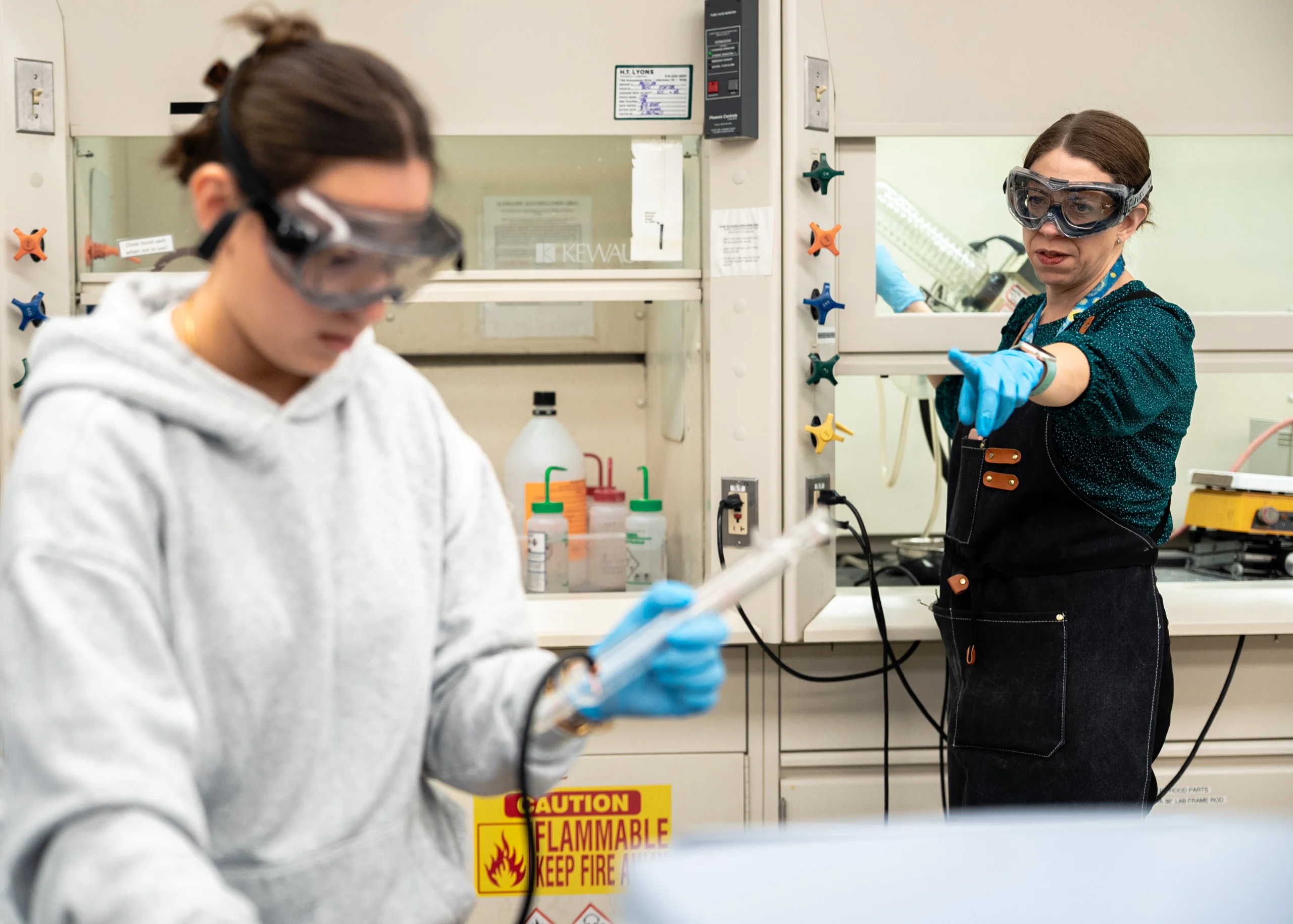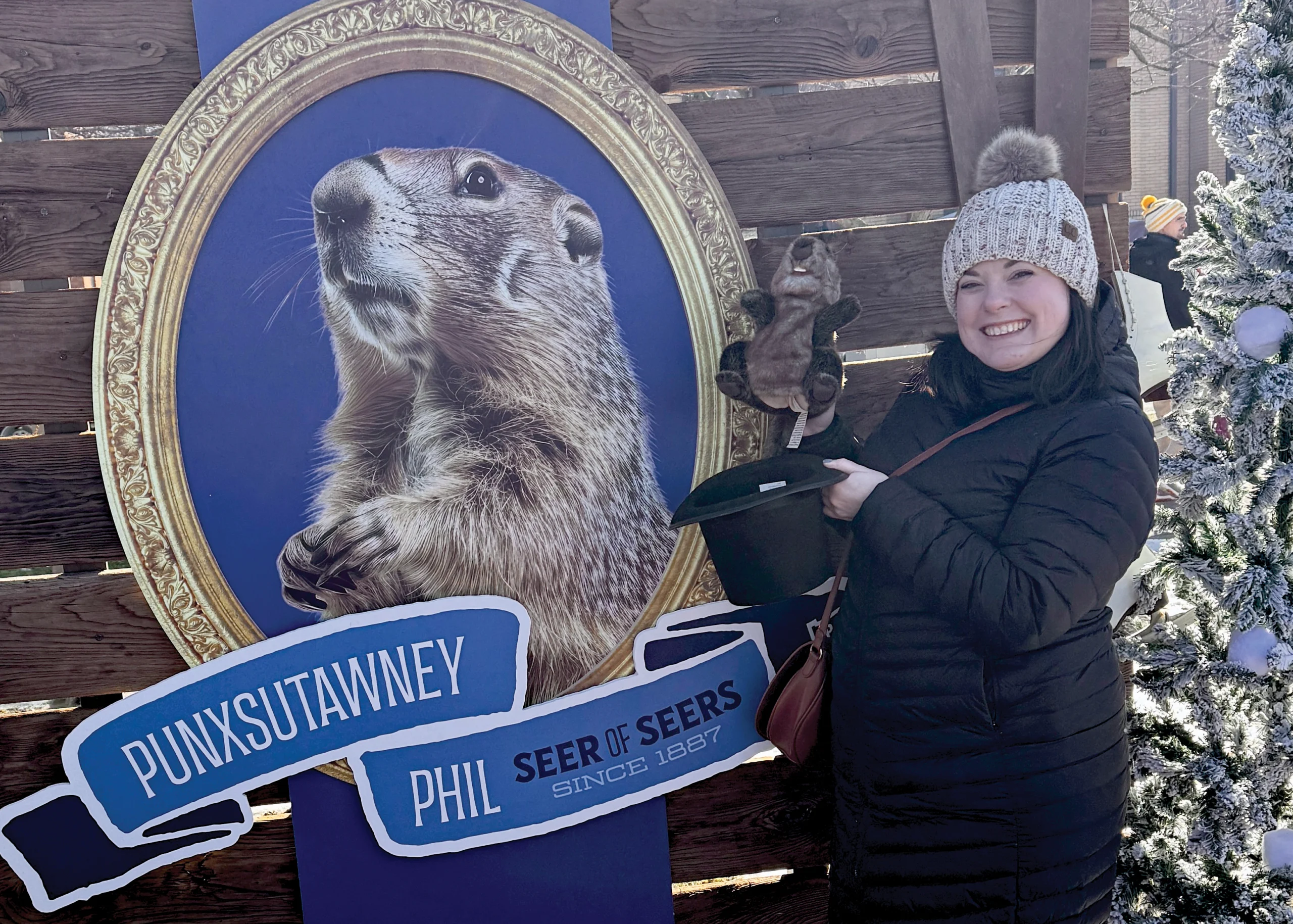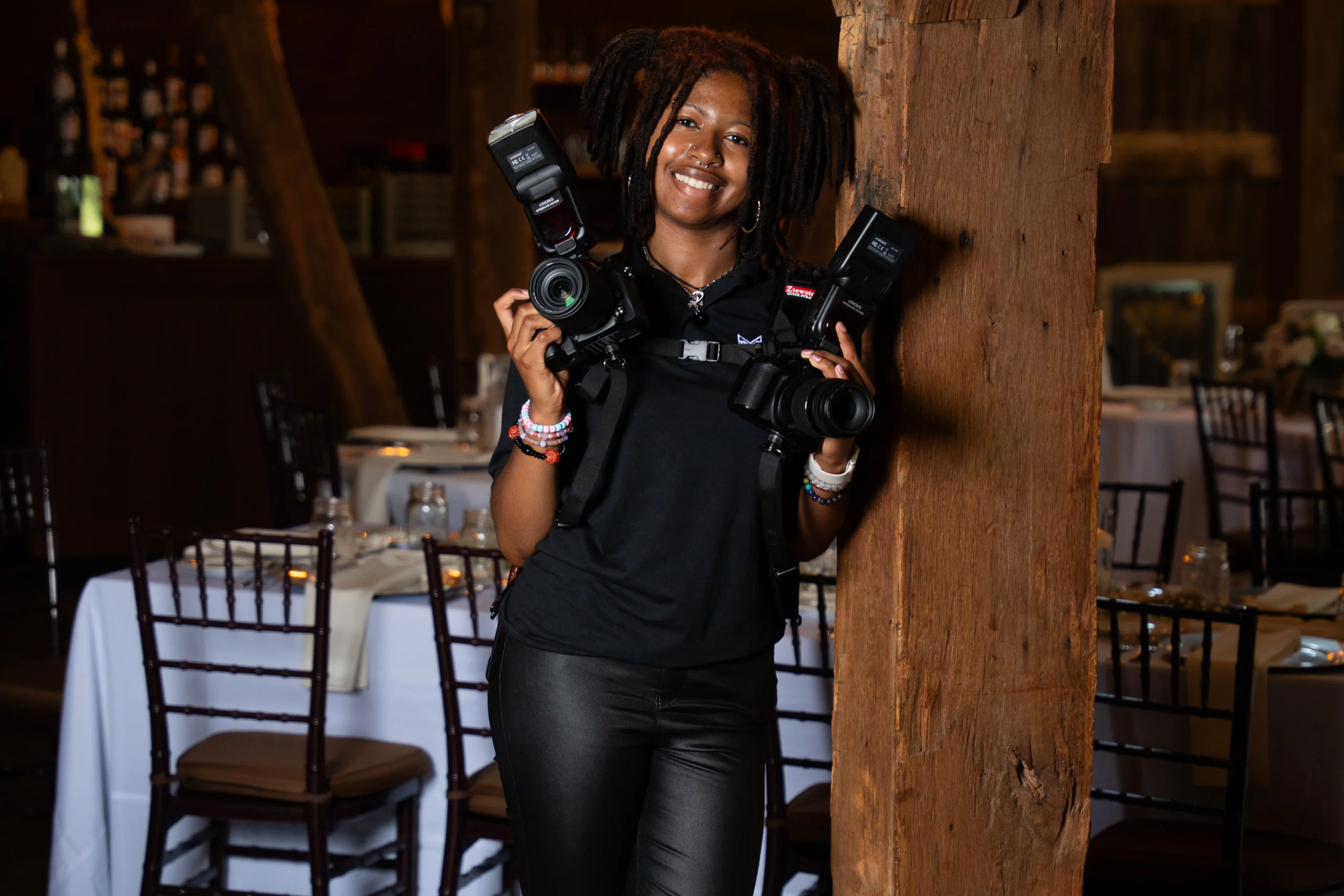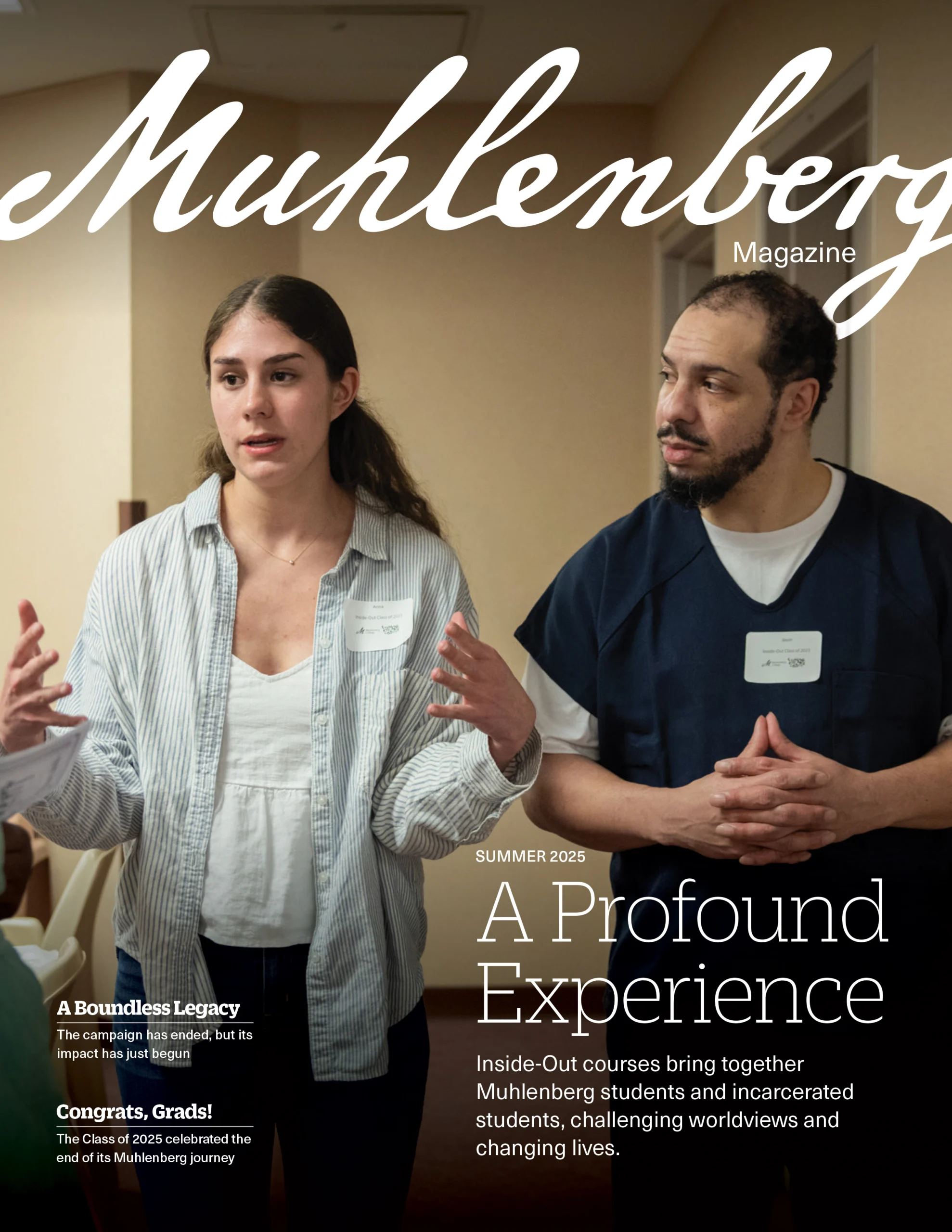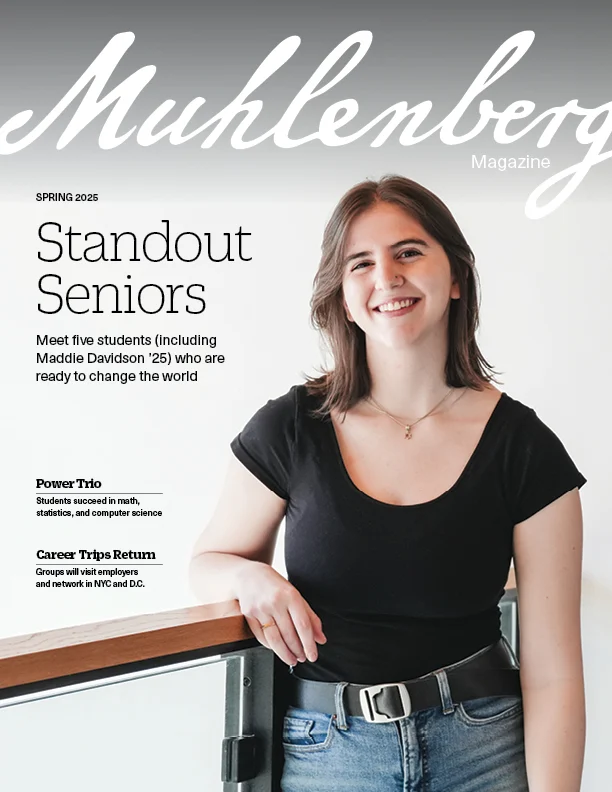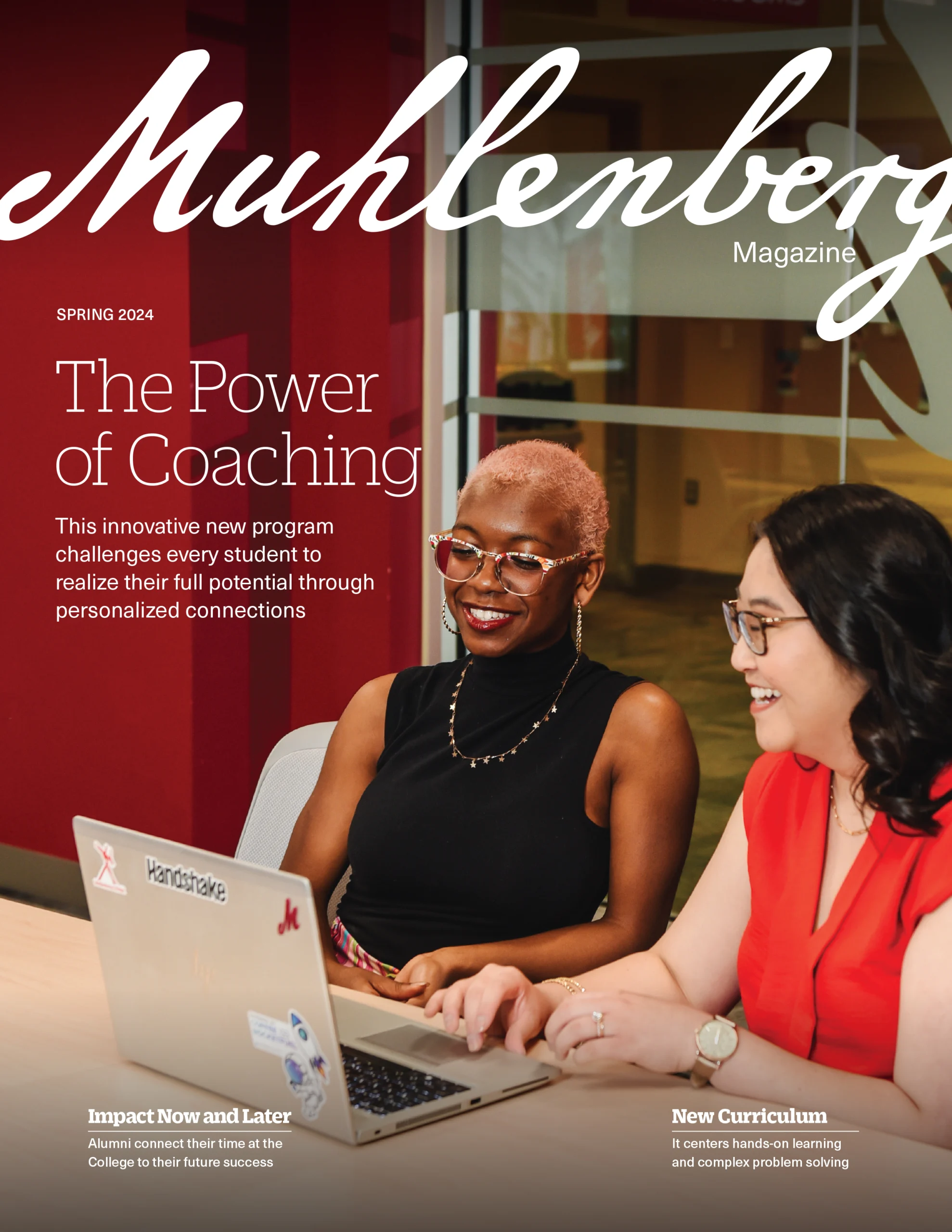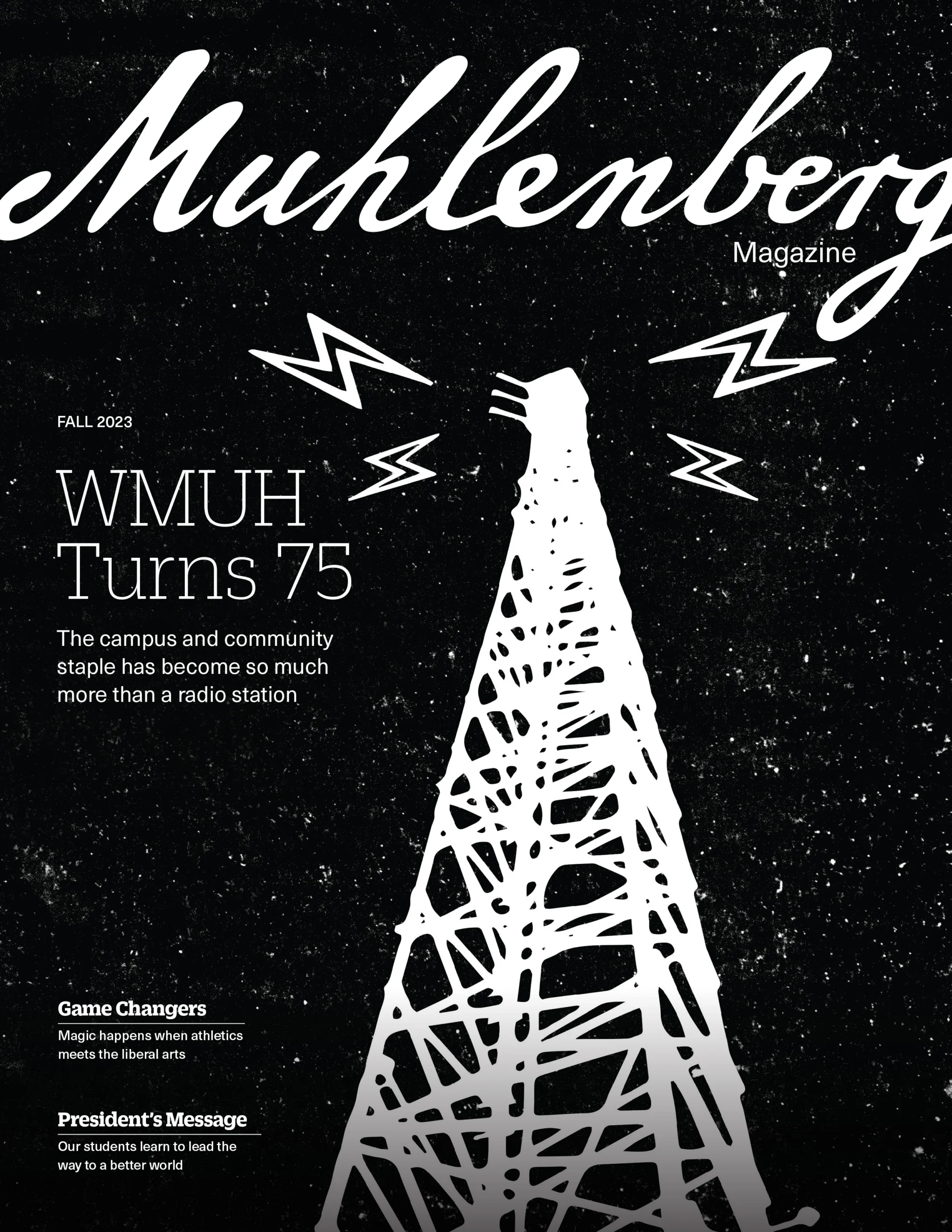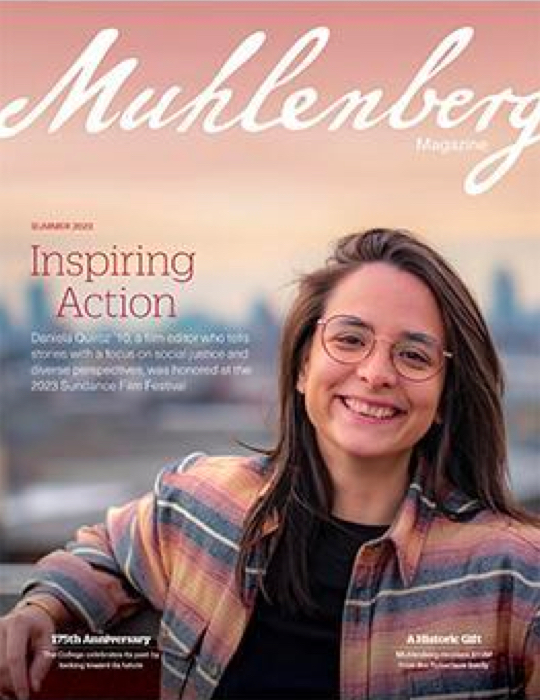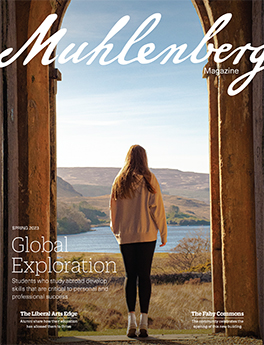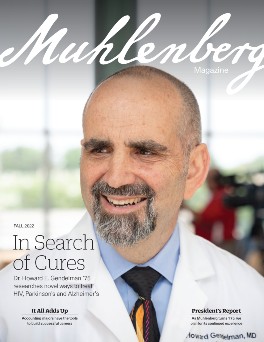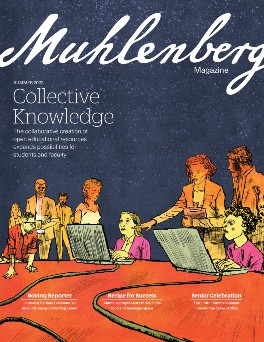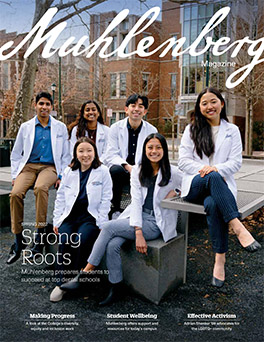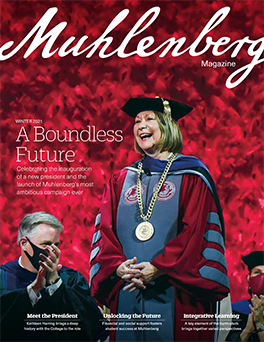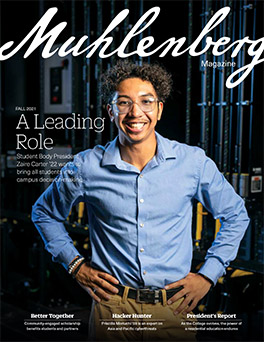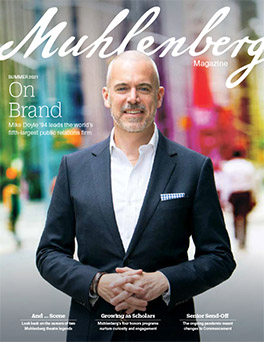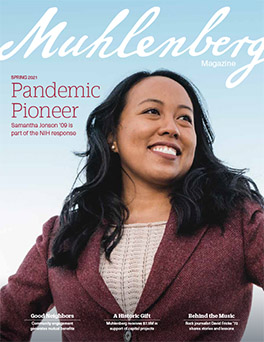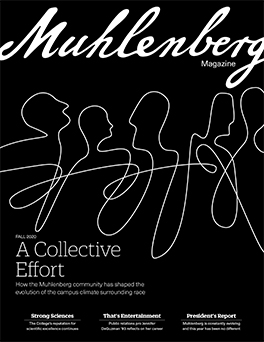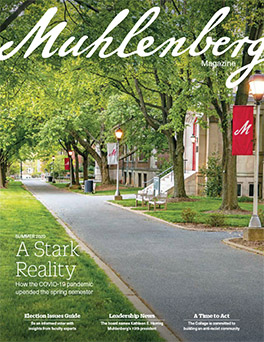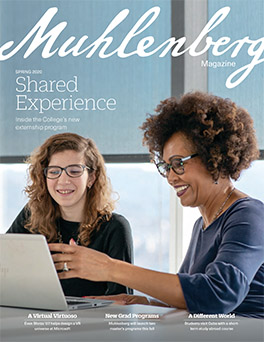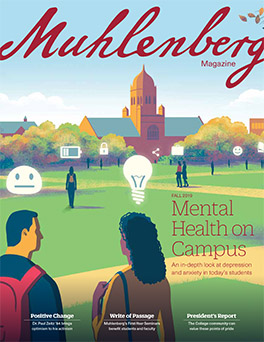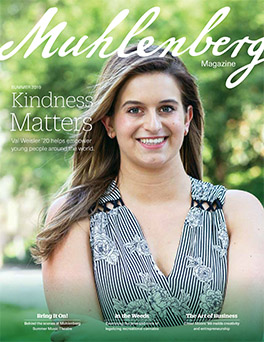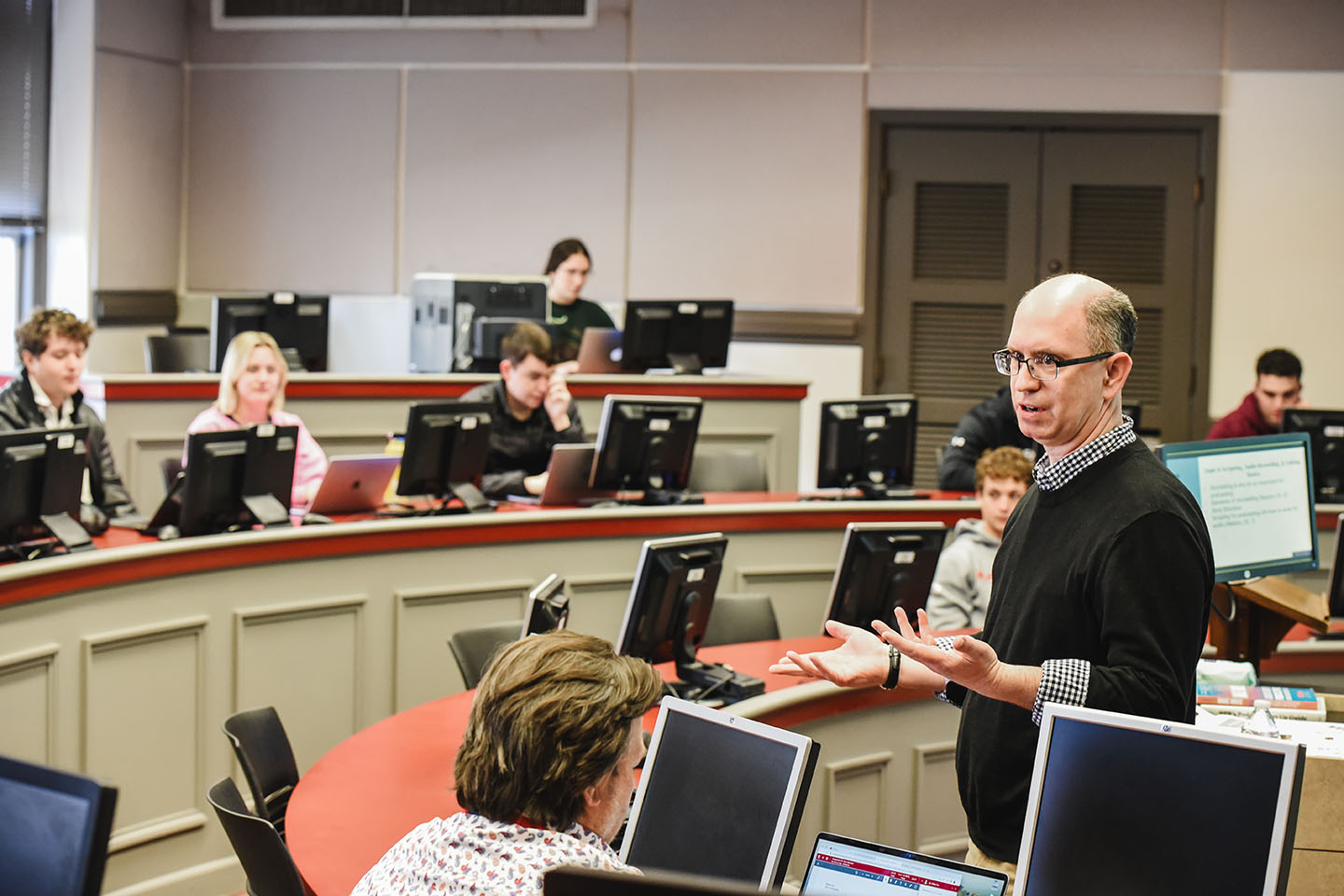Since 2021, WMUH General Manager Paul Krempasky and Professor of Media & Communication John Sullivan have been team-teaching a wildly popular Intro to Podcasting course. It regularly waitlists 30 to 35 students on top of the 18 students in each section of the class itself. In any given semester, a handful of students in the course will also be DJs at WMUH — and those students arrive with a distinct advantage.
“They are more like mentors,” says Sullivan, whose new book, Podcasting in a Platform Age: From an Amateur to a Professional Medium, will be released in January. “They have experience with audio. They have experience with the equipment, of course — the mics and the levels and the boards and things like that — but they also have experience with literally being on the air, doing voiceover narration. They are much more skilled [than their peers] at some of those things that we teach in the course.”
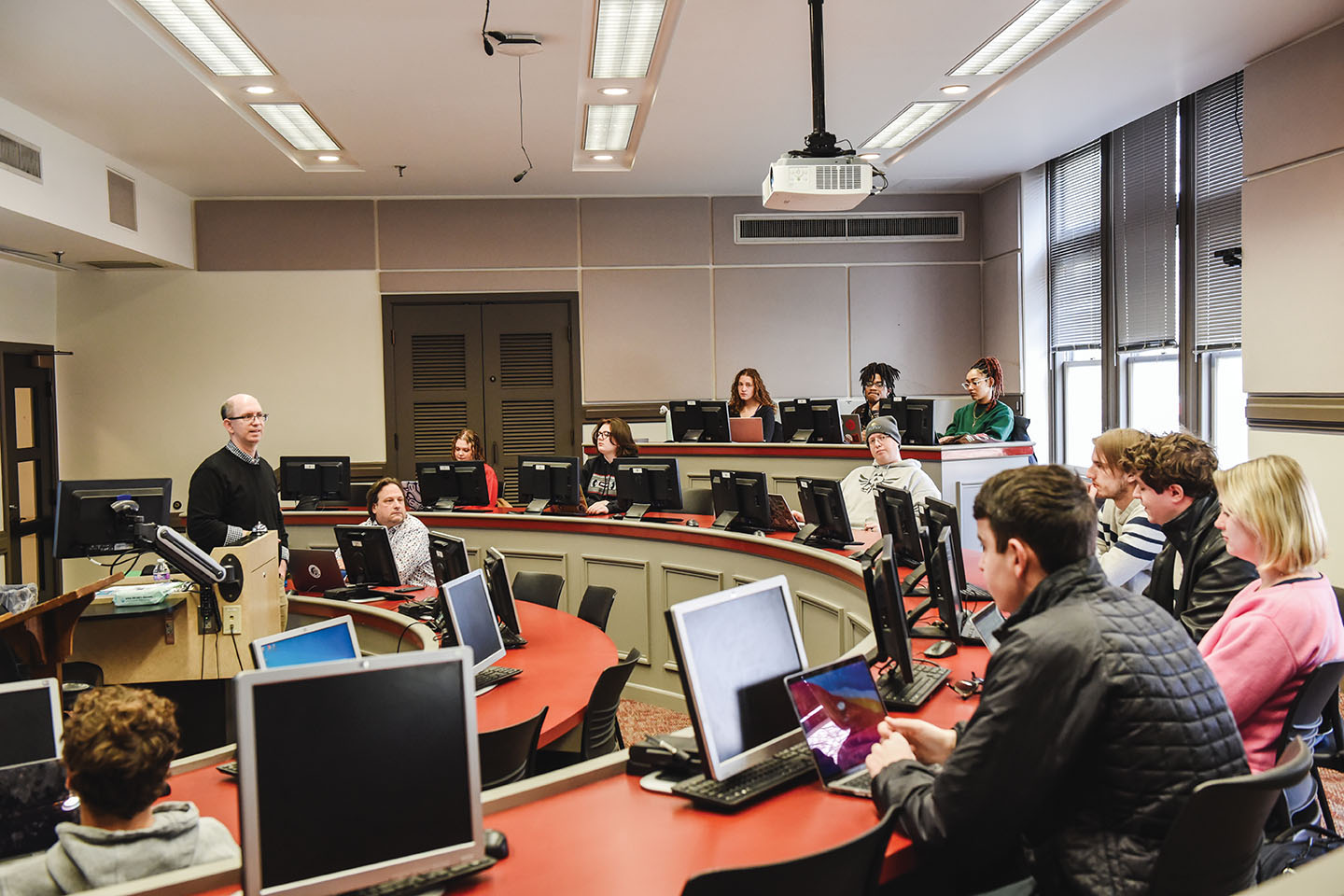
The goal of the class, according to its instructors, is to give students both the creative and technical skills they’d need to pitch and launch their own podcasts. If your reaction is “do we really need another one of those,” point taken — there are currently 4.2 million unique podcasts in existence, per Sullivan, twice as many as were available in 2020. But this proliferation in audio content is partly a reflection of increasing demand. And, the course teaches how to think about a podcast in terms of its marketability to an audience and to sponsors and how to produce a tightly edited file with good audio quality, putting students leaps and bounds ahead of the average would-be podcaster with a USB microphone and a prayer.
Intro to Podcasting as well as Audio Production, a course team-taught by Krempasky and Adjunct Professor of Media & Communication Gina Sierzega, help students build extremely in-demand skills. Today, it’s not just major podcasting companies and public radio stations hiring audio producers and editors. Traditional broadcast radio stations (like those owned by iHeartMedia) “have been jumping headfirst into podcasting,” says Sullivan, and Fortune 500 companies and other businesses are also looking to break into the space.
“We tell our students: If you learn to be a very competent audio editor, you will be able to find freelance work in audio editing without a problem,” Sullivan says. “There is a huge need for that.” (Or, as Krempasky puts it, “If you can edit, you will never go hungry.”)
Students involved in WMUH who’ve also taken these courses have found the skills that they built in the station and in the classroom to be extremely transferable. Sydney Holliday ’23, who was station manager at WMUH and took Audio Production, is now an aspiring actor living in New York City. Her first job after graduation was starring in an essentially one-woman show at Hershey’s Chocolate World; she’s now training to be a Radio City Music Hall tour guide to support her as she auditions. What both roles have in common is the need to command an audience’s attention without much (or any) exchange of dialogue — strikingly similar to the experience of broadcasting on WMUH. She credits having to listen to herself through headphones while live on the air with helping her sound more polished during the interviews that led to these two jobs.
“We tell our students: If you learn to be a very competent audio editor, you will be able to find freelance work in audio editing without a problem. There is a huge need for that.””
—Professor of Media & Communication John Sullivan
“I’m really hoping to get back into audio editing and interviewing again — they take a lot of work, but it’s so enjoyable,” says Holliday, who also was a host and editor for Muhlenberg’s Spotlight on the Performing Arts podcast as a student. “I’ve always got job alerts open for on-air personalities or audio editing, because I know that’s something I still have the skills for and I would love to be able to tack that on so [I can afford to stay in New York] auditioning.”
Gabe Walsh-Shore ’23, a former WMUH station manager who took Intro to Podcasting, is now working as a middle-school math teacher. One reason he got involved with the station and the course is because of his aspiration to become a voice actor, and he feels prepared for such opportunities thanks in part to his experiences in both places. His other career goal was to teach — he was a theatre and mathematics double major who also received his secondary education certification from Muhlenberg — and he’s now seeing how his passions intersect.
“I’ve had mentors and colleagues tell me that my way of speaking and teaching is very clear. It’s easy for students to follow me. I’m not [talking] too fast. Radio really helped me with that,” Walsh-Shore says. “Both [radio and teaching] are live mediums. No re-records.”
The podcasting course is only three semesters old, says Krempasky, so the number of Muhlenberg students who go on to directly apply their audio storytelling skills is sure to grow over time. But the fact that such a course is available at all — and that so many students are able to hit the ground running in it — is a testament to the continuing power of WMUH.
“There are so many exciting things that develop in and around having a student radio station,” Sullivan says. “It’s not just the station itself, which is important in its own right, but it’s all these other things that happen on the periphery of the station that demonstrate part of its value to the College as a whole.”

